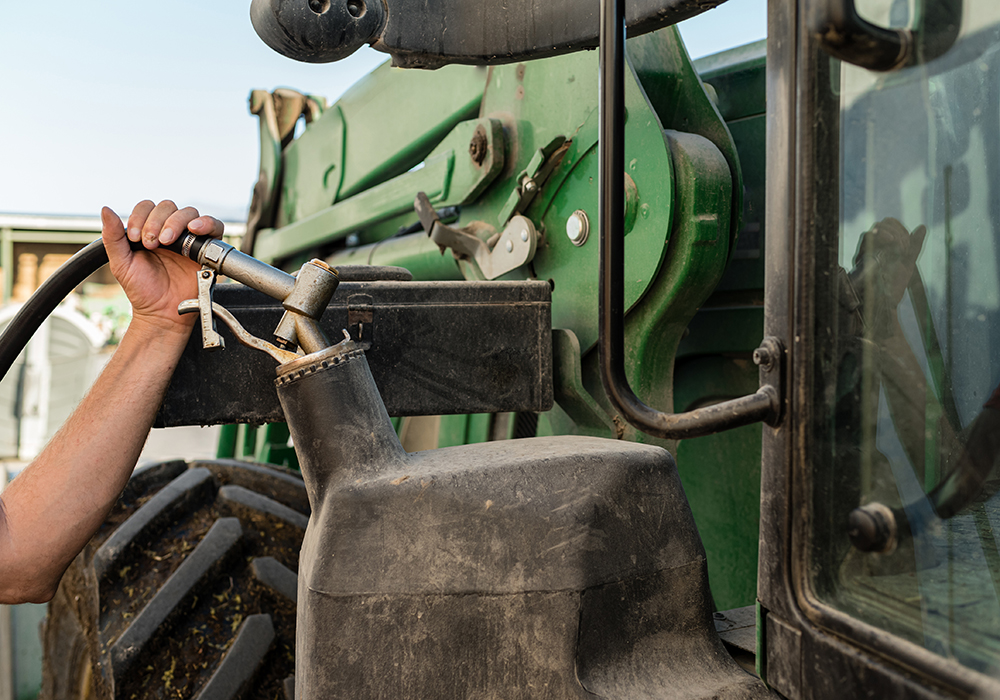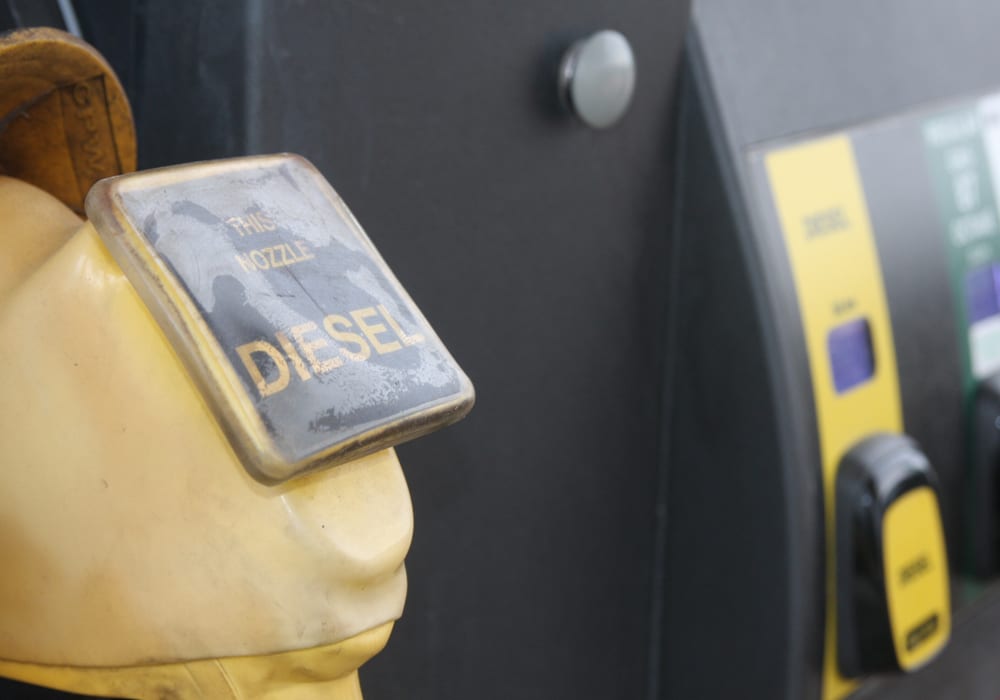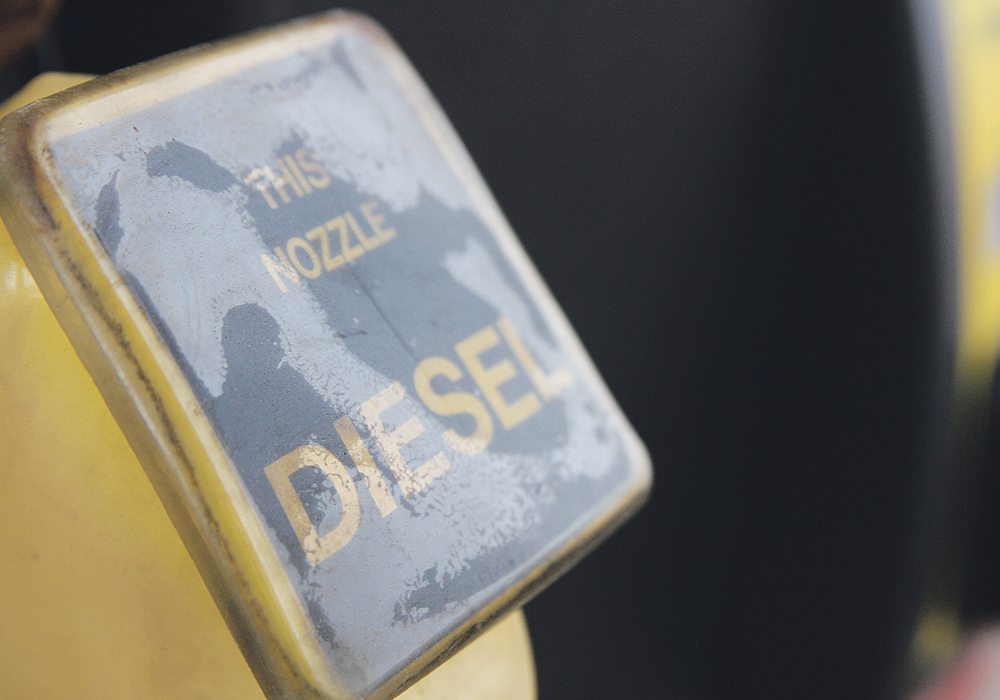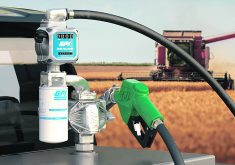Production back to normal | Although supply is on track, the rising price is blamed on the refinery’s temporary shutdown
A Christmas Eve explosion at a major western Canadian refinery won’t curtail the supply of diesel fuel this spring.
“We believe that we’re in as good or better shape than we ever have been going into the spring seeding period,” said Cal Fichter, vice-president of energy with Federated Co-operatives Ltd.
“We don’t see any issues whatsoever.”
An explosion at the Co-op Refinery Complex in Regina temporarily reduced production to 60 to 65 percent of normal output.
FCL was forced to buy fuel from other suppliers for a couple of months while it resolved the problem at its refinery.
Read Also

Farming Smarter receives financial boost from Alberta government for potato research
Farming Smarter near Lethbridge got a boost to its research equipment, thanks to the Alberta government’s increase in funding for research associations.
Diesel production at Regina had returned to normal by early March. Gasoline output is still reduced, but the refinery had a surplus before the incident so supply of both fuels is now in balance with demand.
“We expect to be self-sufficient in supply from now on,” said Fichter.
Vic Huard, vice-president of corporate affairs with FCL, said diesel inventories are full at the refinery complex and at FCL’s bulk fuel plants dotting the countryside. The company has also been encouraging growers to fill their on-farm storage tanks.
“By all accounts that’s happening, so we’re pretty confident, frankly, in the supply chain,” he said.
“As will happen every year, our challenge won’t be supply; it will be logistics in terms of getting fuel out to those places that are running low.”
The price of farm diesel has been on the rise, according to statistics gathered by Alberta Agriculture.
The average price of marked farm fuel with the provincial allowance deducted was $117.15 per 100 litres in March, up 16 percent from a year ago. The price has been steadily increasing this year.
Diesel fuel is one of the top variable expenses for farmers, according to provincial crop production guides.
Jason Toews, co-founder of GasBuddy.com, said the average price at retail pumps in Saskatchewan is up 14 percent from a year ago. Alberta’s price has risen 13 percent and Manitoba’s is up 11 percent.
“(The increase) definitely is substantial,” he said.
Toews believes the price hike is directly related to the temporary production shortfall at the Co-op refinery, which is one of four major refineries operating in Western Canada.
“It has really pushed the price of diesel fuel up in particular,” he said.
“That’s one of the major reasons why we’re seeing diesel so high here right now.”
Huard said many variables go into fuel pricing, such as the U.S. economy heating up, but he stressed there was never a shortage of the fuel.
“There was diesel on the market. There was no diesel shortage in spite of our production challenges in the short-term,” he said.
“Because if there really had been a diesel shortage, we wouldn’t have been able to source any.”
Michael Ervin, president of MJ Ervin & Associates, a consulting firm specializing in the petroleum refining and marketing industries, can’t figure out why farm diesel prices have been increasing when the wholesale price has been flat this year.
“It’s a mystery to me because farm prices generally track the wholesale rack (price),” he said.
Ervin said there has been little volatility in the wholesale price of diesel, and he expected continued stability going forward.
“(Prices) have been very stable since the beginning of the year, and there are no indications that that’s going to change,” he said.
The main factor in the price of diesel is the price of the raw material used to make it, which is crude.
Crude prices are notoriously difficult to predict, but his best guess is that it won’t be fluctuating much.
“We have seen a lot of stability, and certainly barring any geopolitical events that by nature are hard to predict, there’s no reason to believe that they won’t continue to remain stable,” said Ervin.
The other big factor for diesel prices is the refiner crack spread, which is the difference between the price of the crude and the refined product. Ervin said that spread has also been consistent.
“The market is well supplied, so I don’t see any likelihood of any particular volatility for diesel,” he said.


















